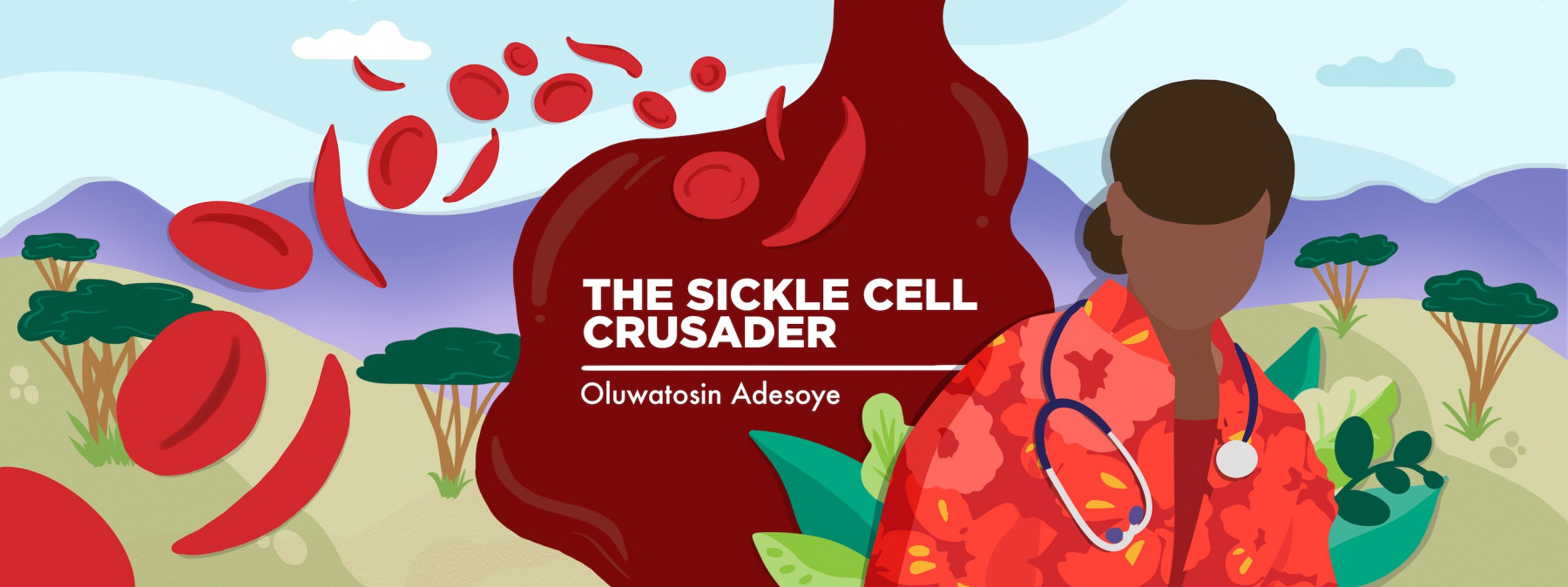My journey to embrace sickle cell as an invisible and visible disability
I'm not alone in having denied my true condition, causing more problems
Written by |

Disability carries a strong stigma, and there’s widespread global ignorance about its meaning. While many associate disability solely with physical or mental impairments, the true definition encompasses more.
Many Africans with sickle cell disease take offense when their health condition is associated with disabilities. They may not understand that disability can be invisible and extend beyond physical or mental impairments. It encompasses any condition that can impair body structure or function, make seeing, walking, or other abilities difficult, or affect participation in work, school, social life, or other everyday activities.
Sickle cell and disability
Sickle cell patients are sometimes absent from school or work because of prolonged hospitalizations as a result of pain crises or other complications. I’ve experienced this problem myself and witnessed other warriors missing school for varying periods, ranging from a single day to years. Sadly, it causes some to abandon their education entirely.
Furthermore, I’ve observed those who have lost jobs because they’ve missed workdays or are otherwise unable to cope with complications. Some end up bedridden because their disease is so severe. Sickle cell can also cause blindness, deafness, bone deformities, and other physical impairments. While some of these outcomes are visible, many other symptoms, including acute and chronic pain and chronic fatigue, aren’t — which is enough to classify sickle cell disease as a disability.
I understand why some sickle cell patients wouldn’t want to accept that their condition amounts to a disability. First, it’s a disease that varies in severity, and those with a mild form of the disease may be asymptomatic or experience only minor symptoms that don’t significantly affect their daily activities. People in this category are unlikely to accept their disease as a disability, especially if they focus solely on themselves and not others.
For some who have moderate to severe disease, however, denial can become a coping mechanism, mostly because they’re uninformed about disability or of its associated stigma.
My own journey to acceptance
Throughout my teenage years, I didn’t see my sickle cell as a big deal, but the symptoms associated with it considerably affected both my functioning and my social life. Accepting it as an invisible disability didn’t bother me, but transitioning from an invisible to a visible disability shook me to the core.
In my early 20s, I experienced bone deformities as a sickle cell complication, and they impaired my walking ability. I’d lived almost two decades walking and strutting perfectly, so the realization that I suddenly couldn’t walk well anymore shattered my world. I couldn’t accept that I suddenly had a visible physical disability. I was in absolute denial.
During that phase, I withdrew from socializing and limited my outings to compulsory occasions only. I avoided any content related to sickle cell or disabilities, including movies and TV shows. I felt embarrassed when old friends asked intrusive questions, like “What’s wrong with you?” or “Why are you walking like that?” Consequently, I distanced myself from them and avoided looking at myself in the mirror because I disliked what I saw.
As an undergraduate, I skipped classes so people wouldn’t see me walk. I was embarrassed by the sympathetic stares and constant feeling of being watched.
My denial phase left me isolated and depressed. Sadly, it led to an academic challenge in one of my courses. Despite excelling in theory and multiple-choice questions, I faced a clinical failure because I missed classes. This experience forced me to confront and accept my disability.
Living with sickle cell disease and studying medicine in a country and institution that weren’t inclusive were difficult enough. I realized that if I didn’t put myself together, I might not achieve my goal of becoming a medical doctor. “You either do this or die trying,” I told myself.
I decided to accept and embrace my disability, love my present self, and reconnect with people. I stopped running away from my challenges and faced them head-on. This change wasn’t easy. It required a lot of bravery and determination. But I won.
Sickle cell disease is undeniably a disability for the majority of people living with it. Its ability to disrupt daily life, hinder work and education, and cause physical impairments qualifies it as such. Those of us with disabilities are normal humans; we’re more than our disabilities. Instead of stigmatization or discrimination, treat us with love, respect, and understanding.
By recognizing the struggles faced by people with disabilities, we can create a more inclusive and supportive world for everyone.
Note: Sickle Cell Disease News is strictly a news and information website about the disease. It does not provide medical advice, diagnosis, or treatment. This content is not intended to be a substitute for professional medical advice, diagnosis, or treatment. Always seek the advice of your physician or other qualified health provider with any questions you may have regarding a medical condition. Never disregard professional medical advice or delay in seeking it because of something you have read on this website. The opinions expressed in this column are not those of Sickle Cell Disease News or its parent company, Bionews, and are intended to spark discussion about issues pertaining to sickle cell disease.







Leave a comment
Fill in the required fields to post. Your email address will not be published.